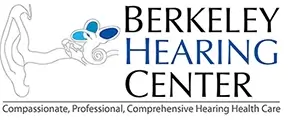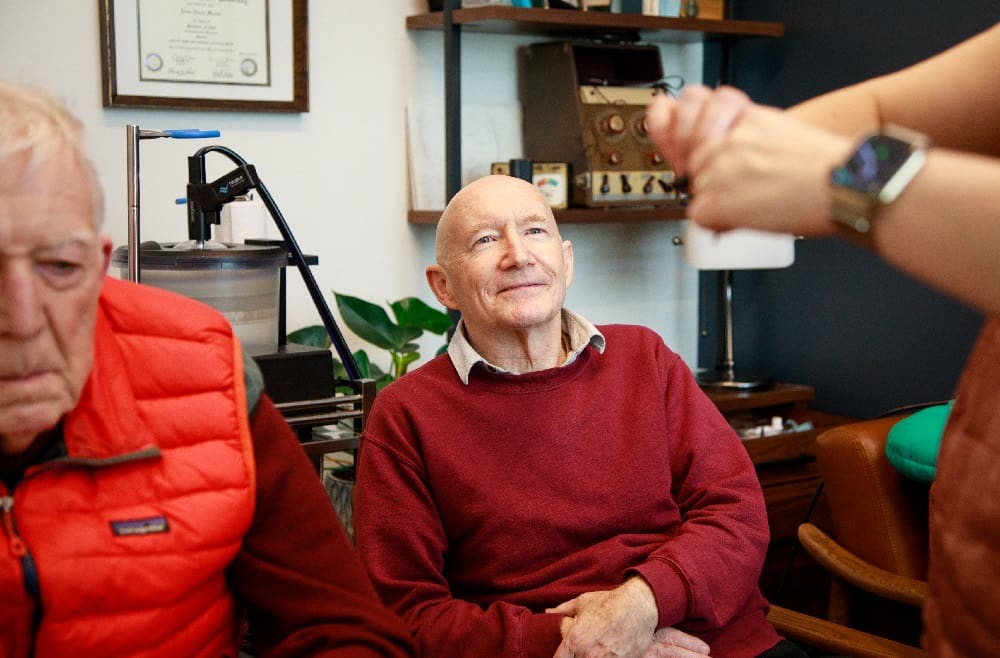2023-04-02
Jonathan Lipschutz Audiologist, M.S., F-AAA, Co-Owner
The word is finally starting to get out! More and more, my patients are relating to me that one of the biggest reasons they decided to do something about their hearing loss was because they are worried about the connection between hearing loss and cognitive decline. Score one for the public health folks and, I’ll say it, even the media! As Audiologists, this is something we’ve known and talked about for decades. But now I’m seeing this pop up in all sorts of places. Thank goodness!
Because it’s so incredibly important for people to understand that hearing aids are SO much more than aids. They literally are the only treatment for sensorineural (nerve) hearing loss (SNHL)! It’s so important, I’ll say it again. Hearing aids are the only treatment for hearing loss.
There’s no surgery, no pill, no physical therapy, nada.
After completing a hearing test, I review the results with every patient (and their family if present) so that they have as good an understanding as possible of what I see. I feel this is critical because they need this information to make good, informed choices about their care going forward. Because of the nature of most hearing loss, more often than not I’m telling them they have SNHL and there’s nothing we can do to fix the ‘damage’. So when I’m then speaking to my patients about the importance of treating their hearing loss with amplification, this is often met with quizzical looks. “Wait, you just said there’s no fix..."
The term ‘hearing aid’ is a very descriptive one, but it’s really selling what they do short. To help patients understand conceptually what these devices do to help them, I break it up among the short and long term benefits hearing aids provide. In the short term, hearing aids are just that, an aid. They just ameliorate some of the issues associated with hearing loss (volume of sounds, background noise), but they don’t fix the underlying problem. That’s because they can’t bypass where the problem is, the cochlea. They’re delivering an enhanced or modified soundscape for the damaged cochlea to then code as good a neural message as it can. So in the short term, hearing aids are ‘just’ aids. Like any other prosthetic, they help/aid the individual in their day-to-day life.
But long term, hearing aids do something other prosthetics don’t. They’re ‘treating’ the brain and improving overall health! When people with hearing loss consistently use properly programmed hearing aids, they are helping to maintain the quality of their residual cochlear neural coding and cortical (brain) auditory processing. And by virtue of this, reducing listening effort, reducing cognitive load, staying more connected to others and improving overall quality of life, they are reducing their chances of cognitive decline and other health issues (depression/anxiety, balance issues).
As an aside, I feel that will be the greatest benefit of OTC hearing aid legislation, raising awareness of hearing loss and the benefits of early identification and treatment. That’s why it’s incredibly important to begin treating hearing loss sooner, rather than later. So don’t wait until you “need” hearing aids before doing something about hearing loss. Your brain will thank you
Please continue to love our community by getting vaccinated/boosted & masking where and when appropriate AND supporting our local businesses.
https://berkeleyhearing.com/wp-content/uploads/2024/11/Discover-the-long-term-benefits-of-hearing-aids-today.jpg
Jonathan Lipschutz Audiologist, M.S., F-AAA, Co-Owner






